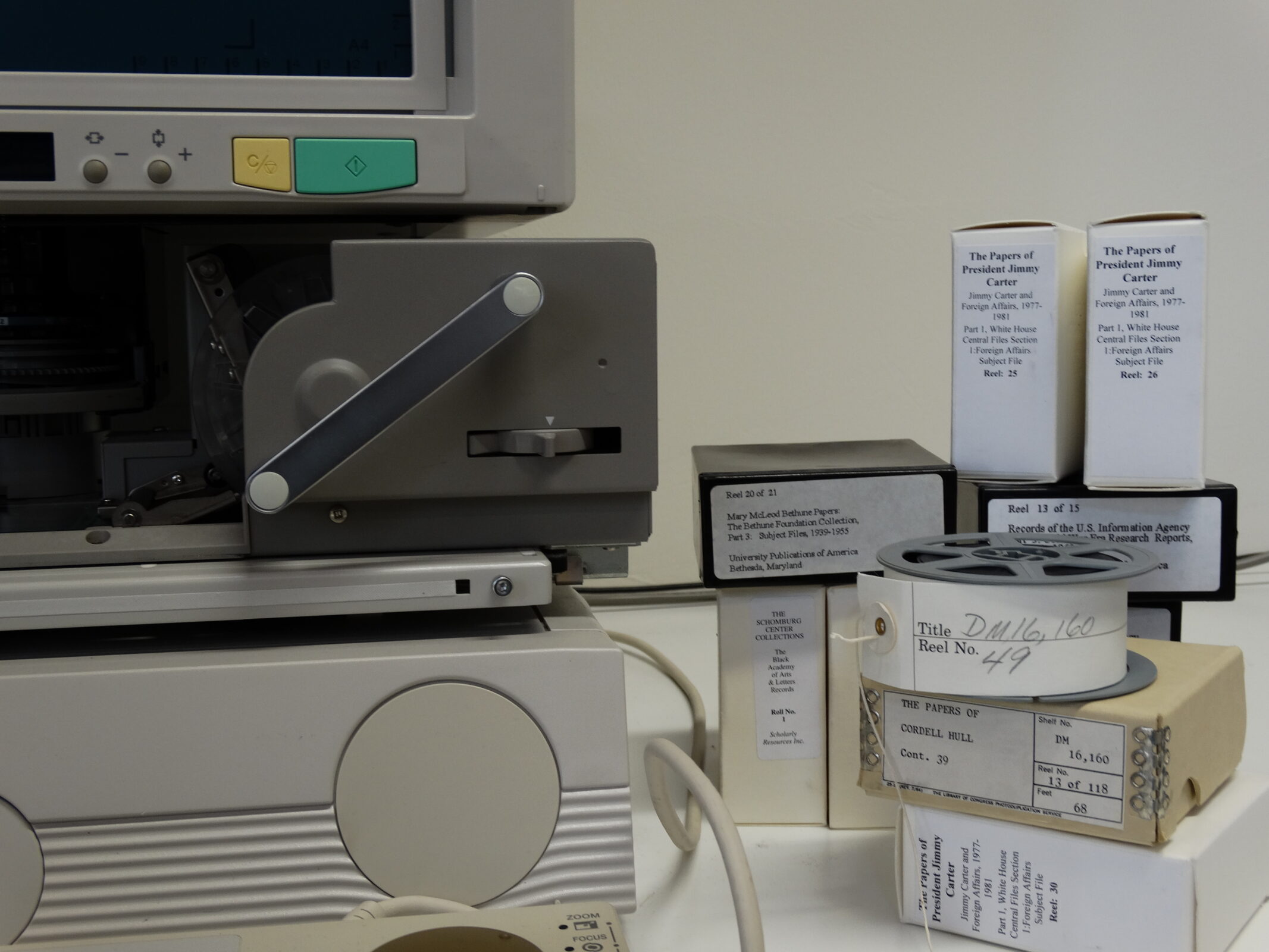Papers of the Nixon White House
The collection of Papers of the Nixon White House at the Roosevelt Study Center includes the following categories:
– President’s Personal Files, 1969-1974. After more than a decade of efforts by the former president to block their release, this collection has been reproduced from the Nixon Presidential Materials Project. With a total of 548 microfiches, it contains the “President’s Speech File,” including remarks that were never recorded by the press and extemporaneous talks; the “Name/Subject File” with correspondence, memoranda, notes, and clippings involving people and topics important to the president; and the “Memoranda from the President File” which contains Nixon’s memos to his White House staff, family, and other associates.
FINDING AID: President’s Personal Files, 1969-1974
– President’s Office Files, 1969-1974. The materials in these files (Documents and News Summaries Annotated by the President), reproduced from the Nixon Presidential Materials Project, cover the years 1969-1974. These files, which consist of 614 microfiches, are especially significant because President Nixon took the time to reflect, annotate, and use them as presidential directives. His notations cover virtually all of the issues that confronted his administration, thus giving researchers an intimate view of the daily activities, thoughts and opinions of Nixon during these crucial years.
FINDING AID: President’s Office Files, Series B: Daily News Summaries Annotated by the President
– H.R. Haldeman Notes of White House Meetings, 1969-1973. As the president’s chief of staff and as Nixon’s most trusted aide Haldeman attended innumerable White House meetings and was privy to almost every political decision that Richard Nixon made. Haldeman’s extensive and meticulous handwritten notes of these meetings provide the quintessential inside view of the administration. This collection contains 98 microfiches.
FINDING AID: H.R. Haldeman Notes of White House Meetings, 1969-1973
Civil Rights During the Nixon Administration, 1969–1974, part 1
During the Nixon presidency, the concept of “equal rights” was broadened from desegregation to include school busing, affirmative action in hiring, women, the elderly, the physically disabled, and an expanding and overlapping list of other groups. Nixon’s files on civil rights policy issues reveal the genesis of many legislative and regulatory initiatives still in effect today. Part 1: The White House Central Files additionally provides insights on presidential decisions as ideologically disparate as Nixon’s nomination of southern jurists Clement Haynsworth and G. Harrold Carswell to the U.S. Supreme Court and his strengthening of the Equal Employment Opportunity Commission. Other records report on the continuing controversy over school desegregation, which spread nationwide during the early 1970s; state and local reports on civil disturbances; the campus turmoil associated with the violence at Jackson State and Kent State in 1970; and the report of the Task Force on Women’s Rights and Responsibilities. The confidential White House Special Files on human rights are also included in the collection, often with Nixon’s own handwritten and dictated comments. (46 reels)
FINDING AID: Civil Rights during the Nixon Administration, 1969-1974
National Security Files Western Europe 1969-1974
This collection consists of the working files of President Nixon’s Special Assistant for National Security Affairs, Henry A. Kissinger. The collection includes letters, treaty drafts, reports, and memos from the State Department, Defense Department, FBI, CIA, US Information Agency, and various US embassies.The countries covered are Belgium, Canada, Denmark, Finland, France, Federal Republic of germany, Iceland, Ireland, Italy, Luxembourg, Netherlands, Norway, Portugal, Spain, Sweden, Switzerland, United Kingdom, and the Vatican. The collection focuses primarily on European involvement in Middle Eastern conflicts, the Vietnam War, and the People’s Republic of China.
FINDING AID: National Security Files Western Europe 1969-1974



